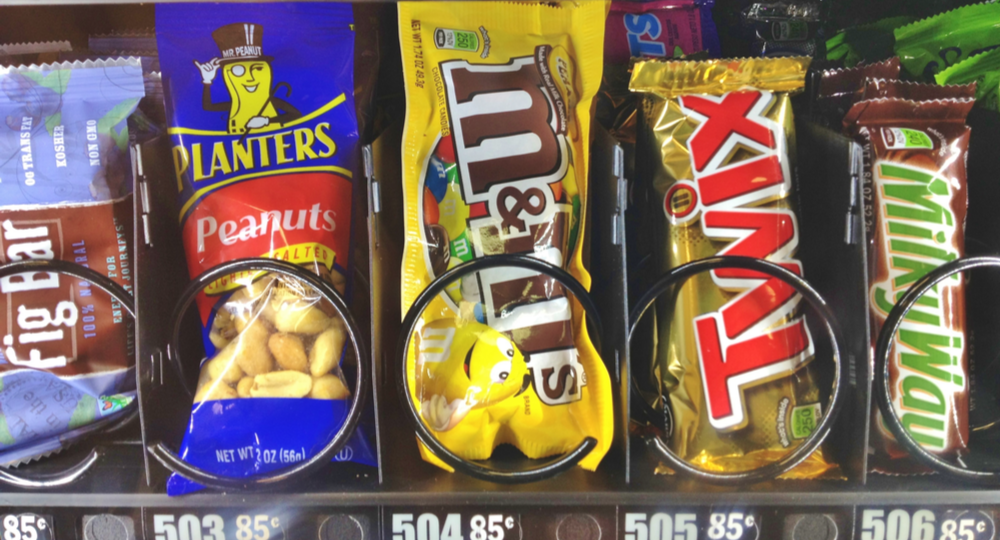
A quick search online for 'healthy vending machine snacks' results in a series of websites that list products they claim to be healthy. Some of the items listed include chips and candy products such as Baked! Lays and Peanut M&Ms. Perhaps those are healthier choices than other selections, but are they actually good for you?
At a time when healthy vending machines are in demand, it's important to acknowledge what we mean when we say 'healthy snacks.'Defining healthy vending machine snacks
Talk with any nutritionist and they'll tell you, "shop the perimeter of the grocery store." Why? Because that's where the fresh foods are. The healthy ones.
Snacks in a vending machine are essentially the items you find in the center of the grocery store. Think about it: a vending machine sits outside in the heat or some dark and dank corner of an office. For those snacks to last in there for months without spoiling, they need preservatives. Not exactly what's considered healthy in the truest sense of the word.
Now, there are vending machines out there that sell actual healthy products. Farmer's Fridge, for example. They provide salads and other fresh products that are made daily and sell them through their own branded vending machines. But most of the products in a typical vending machine aren't fresh at all.
Is this to say what's marketed as a healthy vending machine snack is terribly unhealthy? Not necessarily. But it is a matter of perspective.
What we mean by 'healthy snack'
When we say 'healthy vending machine snacks', what we really mean are products that are at least better than a bag of greasy, fat-filled chips or sugar-loaded candy bars. In other words, they are snacks that are healthier.
Pretzels, granola bars, breakfast biscuits...these are all snacks that aren't 100% healthy. But they do have more nutritional value than regular potato chips and candy.
Are healthy vending snacks just good intentions?
Despite the increase in demand for healthier products, those items are typically not best sellers in vending machines. There are anomalies, of course. But in our experience in managing vending services for thousands of locations nationwide, we've always found the healthier items to be lower in sales.
The answer is often due to pricing. Healthier options cost more to produce, which means vending operators pay more for them, which means the price tag as an option in a vending is higher. When an individual walks up to a sees a healthier snack for $3 and the candy bar for $1, most times they choose the candy.
Where healthy snacks are more popular is in the snack delivery space, presumably because in such cases the customer is a business providing free snacks for employees. The cost is to the business, not the individual.


